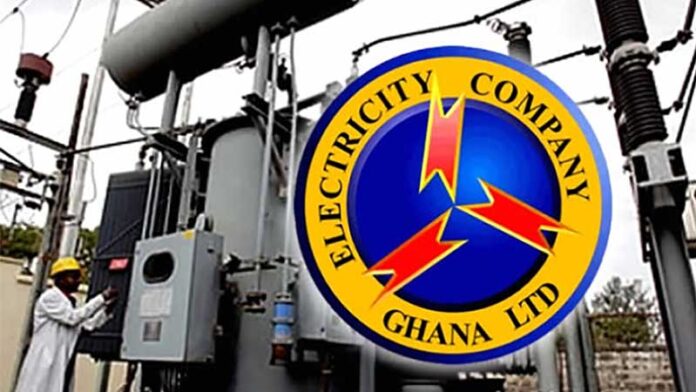
The Public Utilities Regulatory Commission (PURC) has issued a stark warning about the precarious financial state of the Electricity Company of Ghana (ECG), raising concerns about the possibility of bankruptcy.
In a letter addressed to the Presidency, the Ministers of Energy and Finance, and other key stakeholders, PURC’s Executive Secretary, Dr. Ismael Ackah, outlined the severe challenges facing not just ECG, but also the Volta River Authority (VRA), Ghana Grid Company (GRIDCo), and the Bui Power Authority.
Dr. Ackah highlighted that ECG’s financial difficulties have led to delays in salary payments and struggles to cover administrative costs, emphasizing the urgency for swift and decisive action.
Revenue Shortfalls and Unpaid Bills
Despite initiatives to improve cash flow, including digital and metering programmes and tariff hikes of over 75% since September 2022, ECG continues to face severe financial instability. The PURC’s letter detailed that ECG’s revenues for June and July 2024 were GHS 884.2 million and GHS 857 million, respectively—far below the required amounts to meet critical obligations, such as the $47 million monthly Tier A bill to WAPCo under the Cash Waterfall Mechanism.
The situation worsened further in August 2024, with revenues dropping below GHS 800 million, representing just 42% of the necessary funds to pay sector players. The Commission’s report also noted a GHS 860 million shortfall in payments to independent power producers. As a result, companies in Tier B, including VRA, GRIDCo, ECG, Bui Power Authority, and others, are now facing difficulties in covering staff wages and administrative expenses.
Broader Structural Problems
Dr. Ackah emphasized that the issue goes beyond tariff adjustments, calling for structural reforms and introspection to address ECG’s systemic financial issues. The PURC’s letter points out that fuel payments have become a significant factor affecting ECG’s sustainability, and mere stopgap measures will not suffice to resolve the crisis.
Learning from Regional Neighbors
PURC proposed looking at successful interventions from other countries in the region that have faced similar challenges. For example, Kenya’s Power and Lighting Company raised non-tariff funding by listing 50% of its equity on the stock exchange. Tanzania’s TANESCO, after converting government loans into equity, has seen a turnaround in profitability, and Uganda’s Umeme Concession has improved efficiency with a collection rate of nearly 99%.
Recommendations for ECG’s Recovery
In light of these examples, PURC recommends several structural reforms for ECG. Key suggestions include reducing technical and commercial losses, enforcing fiscal discipline, reassessing power purchase agreements, and conducting independent audits to determine ECG’s true financial and technical standing. The Commission also calls for transparency on revenue collections, commercial losses, and non-core activities, all of which are impeding the company’s financial sustainability.
The letter stresses the need for a comprehensive investigation into the root causes of ECG’s financial struggles, urging collaboration between the Ministry of Energy, the Ministry of Finance, the State Interests and Governance Authority (SIGA), and other relevant entities. The ultimate goal is to transform ECG and safeguard the stability of Ghana’s energy sector.
Considering Privatization
As the crisis deepens, PURC suggests that privatization may be a viable option for ensuring ECG’s long-term financial sustainability. The Commission believes that without bold and innovative measures, the ECG’s financial instability could have a ripple effect across Ghana’s entire energy sector, with potentially severe consequences for the country’s power supply.
Source: Ghana/Starrfm.com.gh/103.5FM
